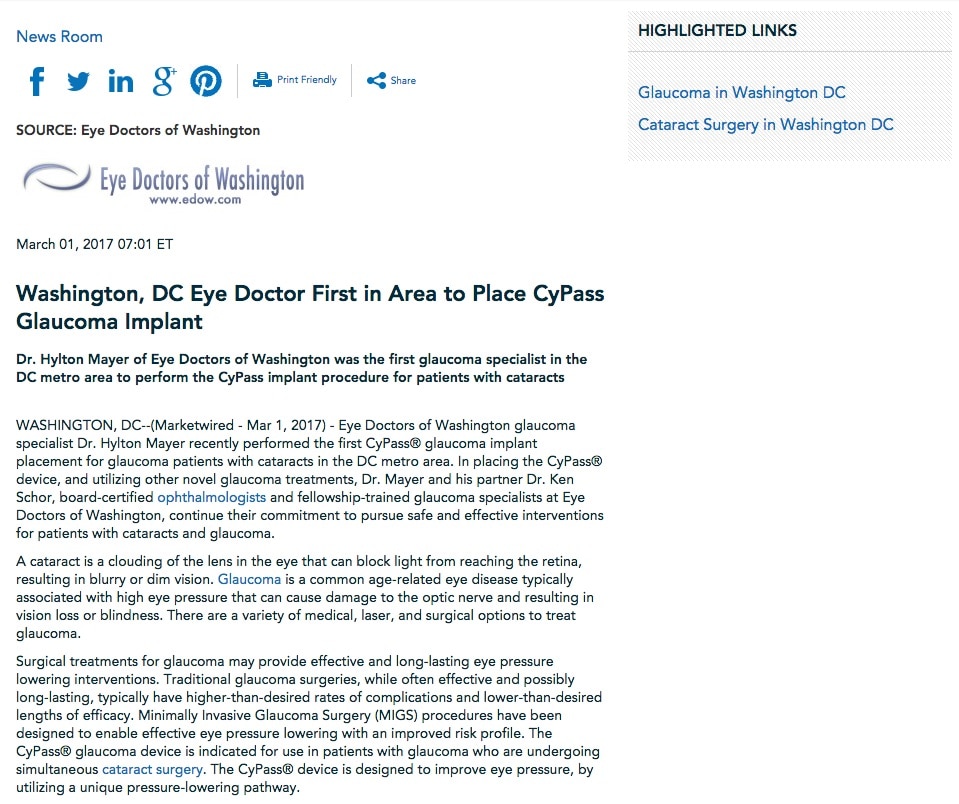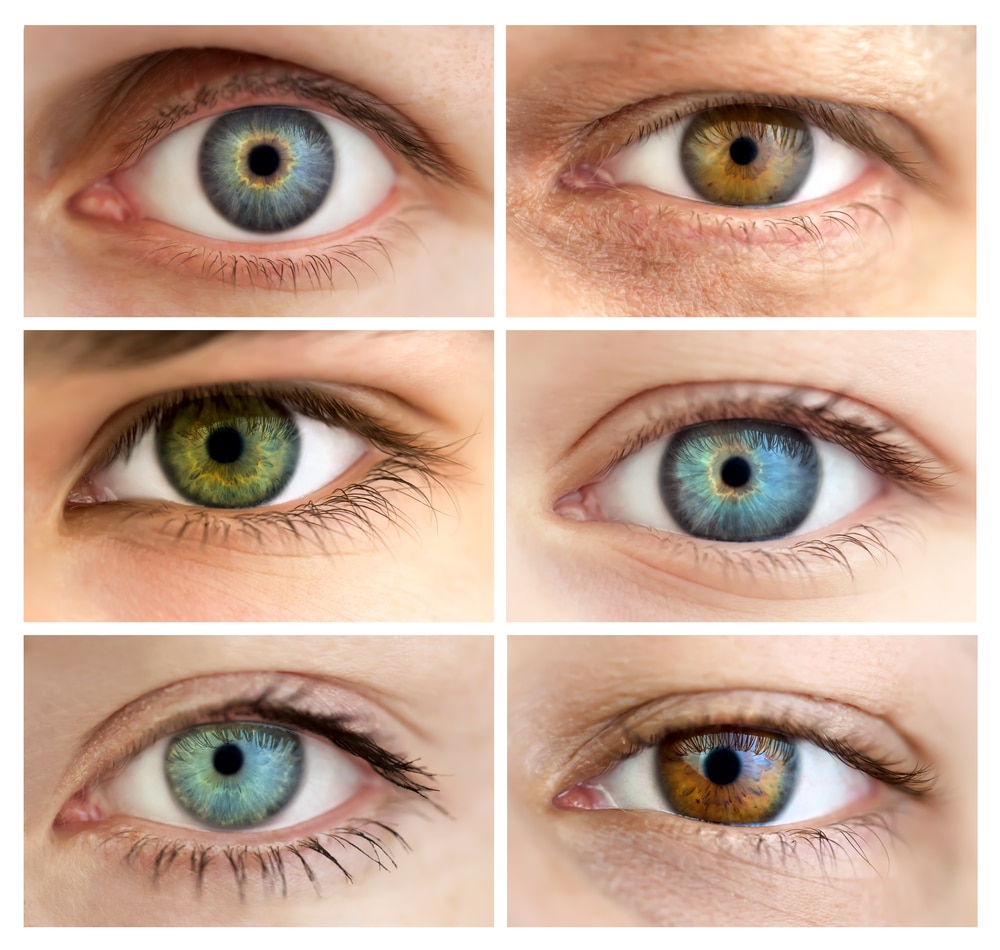Can LASIK Help Patients with Spring Allergies?
Chronic seasonal allergies can cause a variety of uncomfortable symptoms, including red, itchy, and watery eyes. At Eye Doctors of Washington, our team offers testing so you can determine the exact cause of your allergies – and find the proper treatment plan. In addition to seasonal allergies, other irritants such as pet dander or mold… Read More
Washington, DC Eye Doctor First in Area to Place CyPass Glaucoma Implant
Dr. Hylton Mayer of Eye Doctors of Washington was the first glaucoma specialist in the DC metro area to perform the CyPass implant procedure for patients with cataracts. Eye Doctors of Washington glaucoma specialist Dr. Hylton Mayer recently performed the first CyPass® glaucoma implant placement for glaucoma patients with cataracts in the DC metro area…. Read More
Are There Any Side Effects to Cataract Surgery?
Cataracts can be effectively treated by replacing the compromised natural lens with an intraocular lens (IOL). IOLs not only eliminate cataracts but can also simultaneously correct refractive errors including nearsightedness, farsightedness, or astigmatism. After cataract surgery, patients can see more clearly and with an improved ability to focus on objects both near and far. Our… Read More
LASIK Changes the Game for DC United Soccer Players
Our team at Eye Doctors of Washington has the privilege of treating people from all walks of life. Most recently, this included performing LASIK surgery on two sports professionals on the DC United soccer club. Patrick Nyarko and Marcelo Sarvas are both midfielders on the team and had been dealing with poor vision over the… Read More
What Causes Cataracts?
The lens of the eye permits light to pass through to the retina, allowing us to see and focus. Consisting of mostly protein and water, the lenses can become clouded as we age due to clumping proteins called cataracts. Over time, cataracts can grow larger and significantly impair our vision. While there is no one… Read More
Do I Have Cataracts?
As cataracts develop, vision becomes cloudy, hazy, or blurry. Made up of small clumps of protein on the eye’s lens, cataracts typically become worse when not promptly treated. Even if you cannot see a cataract on the lens of your eye, your vision may still be impaired. Some of the most common cataract symptoms include:… Read More
Refractive Surgery Options in Your 50s and 60s
Although there is no official age limit for undergoing different refractive eye surgeries, certain procedures tend to be more beneficial for aging eyes. To determine your candidacy for each procedure, your surgeon will look at the health of your eyes, the stability of your vision, and the thickness or shape of your cornea. For those… Read More
Which is right for me: LASIK or PRK (ASA)?
LASIK is the most popular form of vision correction surgery, and can significantly reduce refractive errors by reshaping the cornea with a laser. However, PRK (photo refractive keratectomy) was actually the first method of laser eye surgery, and still provides some distinctive advantages depending upon the patient. Though both LASIK and PRK use a laser… Read More
Can LASIK Change My Eye Color?
In our culture, eye color is one of many attributes that contributes to a person’s perceived overall attractiveness. Blue eyes, specifically, tend to be a coveted trait. Those who are born with a different eye color than they desire have resorted to colored contacts for decades, and until recently, this was the only option to… Read More
Is LASIK Permanent?
To achieve successful, long-lasting results with LASIK surgery, the first step is to determine your candidacy by scheduling a consultation with an experienced eye doctor. After performing an eye exam and reviewing your medical history, your eye doctor can help you make a well-informed decision about your vision. Ideal candidates for LASIK surgery are usually… Read More










